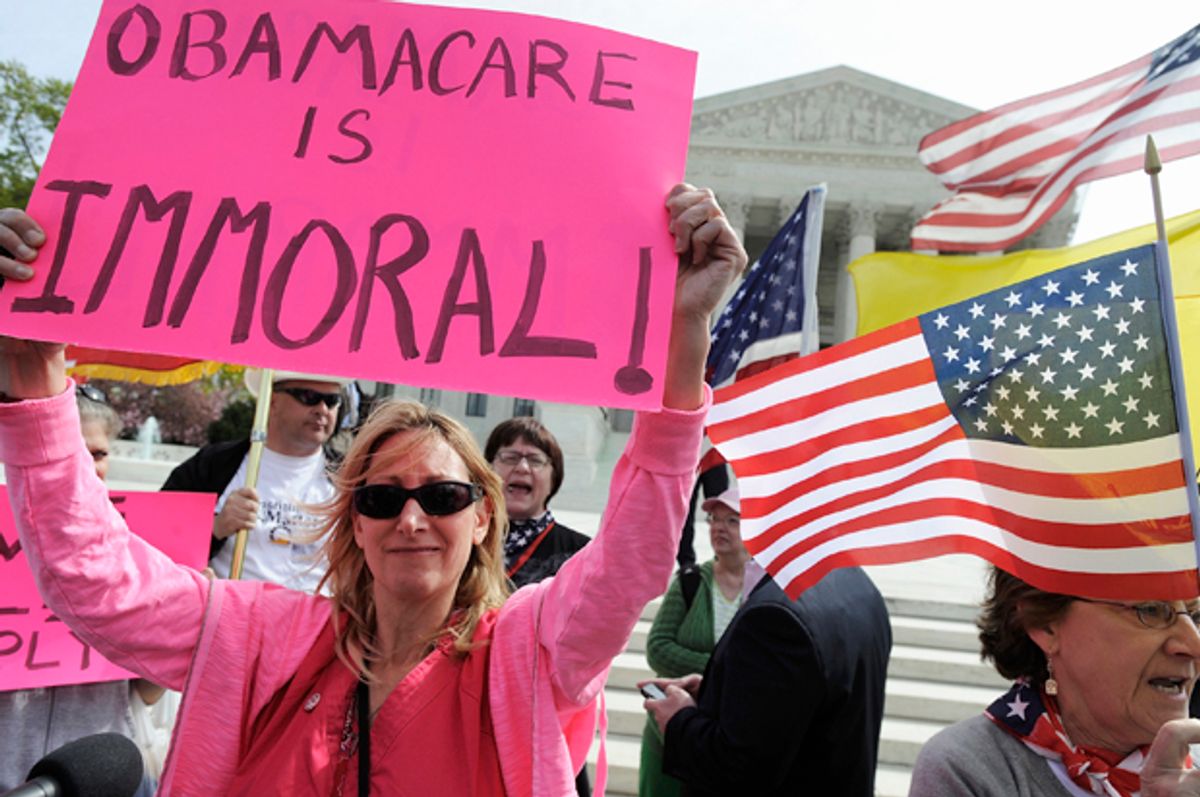As you’ve probably heard, the Affordable Care Act is facing a future that could be charitably described as “uncertain.” With Donald Trump set to assume the presidency and Republicans in control of both houses of Congress, all it will take is some procedural hoop-jumping on the part of the GOP to pass a bill that will do extensive damage to the ACA’s fundamental support structure — a bill that Trump has said he will sign. Even so, with that dire prognosis looming, the ACA has been getting some pretty decent news of late.
Despite the palpable Republican enthusiasm to kill the law, or perhaps because of it, people are signing up for coverage in droves. This year’s open enrollment period saw 400,000 more people sign up than last year. While other factors almost certainly contribute to the increase in enrollment (the fine for declining coverage is now over $2,000, for example), it’s reasonable to surmise that people are rushing to get health coverage while they still can. Insurers are already locked in to marketplace participation in 2017, so signing up for coverage now guarantees at least a year’s worth of insurance coverage (and subsidies to help pay for it).
This has to be welcome news for insurers, some of whom have backed away from participation in the Obamacare marketplaces due to excessive financial losses. A new report from Standard & Poor's projected that 2017 will actually be a pretty good year for the ACA and for insurers participating in the marketplaces, “with more insurers getting close to breakeven or better.” What the insurers want from the Obamacare marketplaces is for more healthy people to sign up and pay for coverage. This report suggests that might happen.
As for those who’ve already benefitted from the ACA, the Urban Institute just put out a big study breaking down what kinds of people have gained coverage over the past few years. It found that there’s been a nearly 40 percent drop in the national uninsured rate since 2010, and that “men and women of all ages and across race, ethnicity, and education levels benefited from gains in coverage.” Significantly, the report found a major disparity in coverage gains when comparing states that cooperated with ACA implementation and those that did not: “States that expanded Medicaid under the ACA saw larger percentage reductions in their number of uninsured residents than did states that chose to not expand Medicaid (45 percent compared with 29 percent).”
All this positive data adds another layer of complication to the Republican plan to “repeal and delay” the ACA. Republicans like House Speaker Paul Ryan like to argue that the ACA is in a “death spiral” and that insurers are fleeing in droves. This rash of year-end data provides ammunition for the law’s supporters to make a plausible counterargument: More people are signing up for coverage, the marketplace outlook is getting better, and many millions of people have already benefited. No one should argue that the law is perfect (deductibles remain high), but it’s certainly not dying.
And again, there’s still no answer for what will comes after a Republican repeal. And even though the GOP has the tools at its disposal to repeal the ACA, there’s dissension within conservative ranks over what actually constitutes “repeal.” The Cato Institute’s Michael Cannon wrote this week that for the ACA to be truly “repealed,” you have to get rid of the law’s prohibitions against insurer discrimination based on pre-existing conditions. Republicans tend to get pretty wobbly on this point, given that this aspect of the ACA is extremely popular. The problem is that you can’t repeal the individual mandate and leave the preexisting conditions ban standing without causing havoc on the insurance markets.
Meanwhile, Republican voters are apparently beginning to reconsider their hardline opposition to the ACA now that repeal is actually staring them in the face. We’re already starting to see news reports about voters who cast their ballots for Trump but didn’t really expect him to follow through on his loud and repeated promises to ditch Obamacare.
Basically, the coming repeal fight will come down to two competing narratives. Republicans are arguing that getting rid of the ACA is good because they’re going to replace it with lots of freedom and a reform plan that is forever TBD. Obamacare supporters will make the case that the law is actually doing good stuff and getting better, and that a half-considered plan to repeal it will sow chaos in the insurance markets and throw millions of people into healthcare limbo.
Republicans are still likely to follow through on their plan to repeal the ACA, but Democrats can make a stronger case than before that repeal will do more harm than good.



Shares